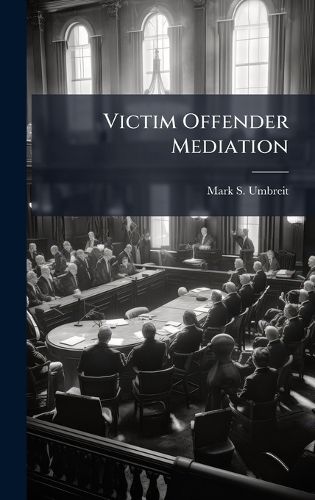Readings Newsletter
Become a Readings Member to make your shopping experience even easier.
Sign in or sign up for free!
You’re not far away from qualifying for FREE standard shipping within Australia
You’ve qualified for FREE standard shipping within Australia
The cart is loading…






The National Institute of Corrections (NIC) is an agency of the United States government. It is part of the United States Department of Justice, Federal Bureau of Prisons. NIC provides support programs to assist federal, state, and local corrections agencies. Additionally the NIC provides funds to support programs that are in line with its key initiatives. The NIC was created by the United States Congress in 1974 on the recommendation of the National Conference on Corrections. The National Institute of Corrections publish many documents with a variety of topics such as: Workload Measures for Probation and Parole, Prison Hostage Situations, National Study of Jail Suicides, and many more. This is one of those publications.
This work has been selected by scholars as being culturally important, and is part of the knowledge base of civilization as we know it. This work was reproduced from the original artifact, and remains as true to the original work as possible. Therefore, you will see the original copyright references, library stamps (as most of these works have been housed in our most important libraries around the world), and other notations in the work.
This work is in the public domain in the United States of America, and possibly other nations. Within the United States, you may freely copy and distribute this work, as no entity (individual or corporate) has a copyright on the body of the work.
As a reproduction of a historical artifact, this work may contain missing or blurred pages, poor pictures, errant marks, etc. Scholars believe, and we concur, that this work is important enough to be preserved, reproduced, and made generally available to the public. We appreciate your support of the preservation process, and thank you for being an important part of keeping this knowledge alive and relevant.
$9.00 standard shipping within Australia
FREE standard shipping within Australia for orders over $100.00
Express & International shipping calculated at checkout
The National Institute of Corrections (NIC) is an agency of the United States government. It is part of the United States Department of Justice, Federal Bureau of Prisons. NIC provides support programs to assist federal, state, and local corrections agencies. Additionally the NIC provides funds to support programs that are in line with its key initiatives. The NIC was created by the United States Congress in 1974 on the recommendation of the National Conference on Corrections. The National Institute of Corrections publish many documents with a variety of topics such as: Workload Measures for Probation and Parole, Prison Hostage Situations, National Study of Jail Suicides, and many more. This is one of those publications.
This work has been selected by scholars as being culturally important, and is part of the knowledge base of civilization as we know it. This work was reproduced from the original artifact, and remains as true to the original work as possible. Therefore, you will see the original copyright references, library stamps (as most of these works have been housed in our most important libraries around the world), and other notations in the work.
This work is in the public domain in the United States of America, and possibly other nations. Within the United States, you may freely copy and distribute this work, as no entity (individual or corporate) has a copyright on the body of the work.
As a reproduction of a historical artifact, this work may contain missing or blurred pages, poor pictures, errant marks, etc. Scholars believe, and we concur, that this work is important enough to be preserved, reproduced, and made generally available to the public. We appreciate your support of the preservation process, and thank you for being an important part of keeping this knowledge alive and relevant.